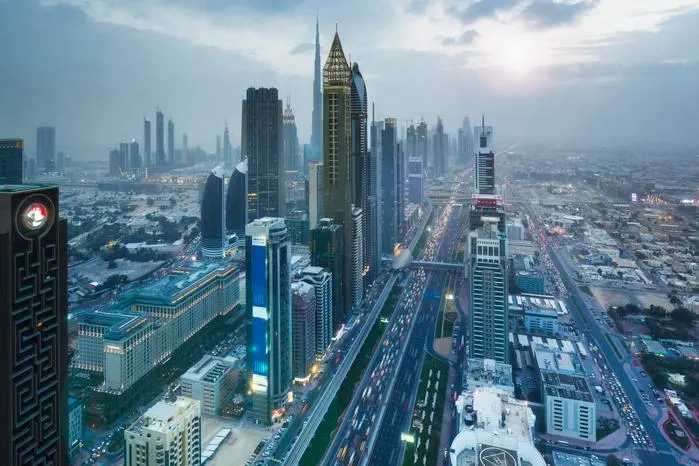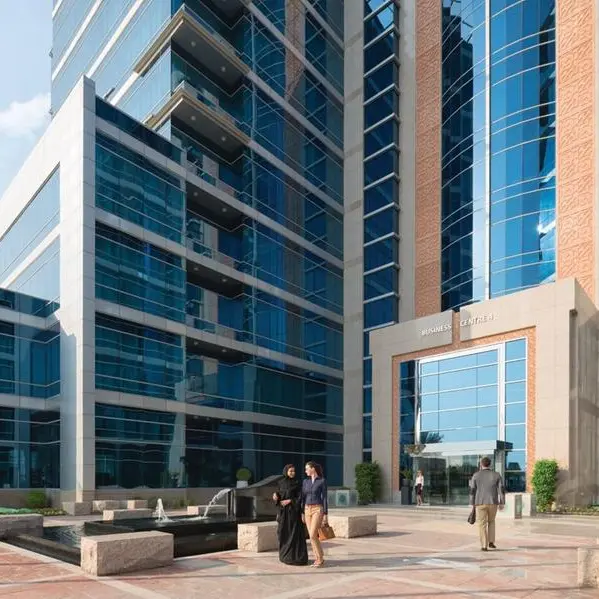PHOTO
Attractive payment plans, along with high returns despite falling housing rents, have led to a tremendous surge in Chinese demand for Dubai apartments.
According to industry sources, property buyers from China are shifting interest from key markets and eyeing Dubai more than ever before, not only because the emirate offers a high-quality lifestyle and low tax rates, but because it provides one of the best investment returns.
“They used to invest in Australia, Canada, America and the UK, but these markets are not so good. The economy is also not doing well and the tax is very high,” Black Pang, general manager of Huaxia Real Estate, told Zawya.com.
Rental yields on properties in the city average at 6 per cent, much higher than what other markets can offer. In Brisbane, Australia, known for being a haven for millionaires, landlords can expect to gain an average of 4.5 per cent from a rental property, while other markets, such as London, New York and Paris, the returns are much lower, at 2.3 per cent, 3 per cent and 2.8 per cent, respectively, according to Lynette Abad, director of data and research at Property Finder.
Dubai also offers a variety of payment plans, and developers are enticing house hunters with attractive offers based on interest rates and on installments before handover of the residential units.
“Developers are constantly changing their offers and using different tactics to lure in investors. The most recent popular incentive has been post-handover payment plans [for] 5-to-10 years, no service fees for 5-to-10 years and waiving of agent and Dubai Land Department fees,” said Abad.
Last March, Arthur Mackenzy Properties unveiled a 15-year post-handover payment plan for Casa Flores, its premium townhouse villa development in Motor City. Nakheel had also earlier offered post-handover payment plans of up to seven years, as well as five years’ free service charges for a range of projects.
From the perspective of a buyer who hates waiting around for an off-plan apartment to be delivered or is unwilling to take the risk that the construction will get delayed or cancelled after putting up the money, post-handover plans provide a more attractive and secure option.
The Chinese nationals have jumped at this opportunity, and by the same time last year, they had purchased 1.7 billion dirhams worth of properties in Dubai, making them the fourth-biggest buyers of apartments in the city.
This is a remarkable reversal from a few years ago, when buyers from China were focusing on other markets and were nowhere in Dubai’s top 10 list of buyers. In 2016, total residential and commercial acquisitions by the Chinese in the United States reached $56.3 billion, but that figure dropped to $39.7 billion in 2017, according to the data collated by Chinese property portal juwai.com. In Canada, Chinese property investment also dropped by 58 per cent, from $5.1 billion to $2.1 billion.
In Dubai, the trend is different. “From 2015 to 2016, there was a 16 per cent increase in transactions by Chinese buyers, and from 2016 to 2017, there was a significant increase of 64 per cent,” said Abad. “Over the last few years, quite a few of the larger brokerages and the developers have invested a lot of time and resources to bring in more Chinese investors, and they have been successful.”
Pang’s company, which opened in Dubai late last year, saw buyer interest pick up in February this year, particularly during the Chinese New Year.
Most of the investors from China are prepared to spend an average of 1 million dirhams on a property, and many of them are drawn to premium developments, including those in the upscale Downtown Dubai area, Meydan, Creek Harbor and MBR City.
“These buyers are keen on acquiring small residential units, like studio flats. There has been growing interest in properties in Downtown Dubai, Meydan, Dubai Creek and beachfront properties from Emaar,” said Pang.
“The majority of Chinese investors tend to buy in areas close to their trade or business hubs; therefore, a trend that has remained constant is Chinese buyers purchase apartments in International City that are less than 1 million dirhams. However, in recent years, we have seen Burj Khalifa area apartments become a popular choice amongst Chinese buyers.,” Abad added.
“Chinese property buyers are attracted to Dubai’s property market because there is currently no income tax, corporate tax or capital gains tax in the UAE,” said Sayndippta Ghosh. head of residential UAE, JLL. “Great prices and payment terms are major factors in attracting foreign investors to purchase properties in the country.”
Given the current trend, Ghosh said that China will further strengthen its position as a top source market for real-estate investments in Dubai.
“Over the next five years, the Chinese are expected to represent a growing sector of the market, with many of the major developers currently targeting this sector through sales events in China and relationships with Chinese brokers,” said Ghosh.
(Writing by Cleofe Maceda, editing by Seban Scaria)
Our Standards: The Thomson Reuters Trust Principles
Disclaimer: This article is provided for informational purposes only. The content does not provide tax, legal or investment advice or opinion regarding the suitability, value or profitability of any particular security, portfolio or investment strategy. Read our full disclaimer policy here.
© ZAWYA 2019





















